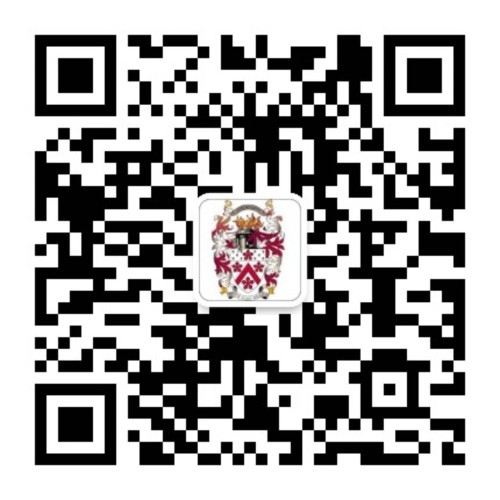Y12 University Application Kick-off Event: Mapping Your Path
This month, we hosted the Class of 2026 University Application Kick-off Event, an exciting milestone for our students as they begin their journey towards higher education. The event was designed to equip students with vital insights into their academic pathways whilst also providing parents with a detailed overview of the university admissions process. It was a collaborative and informative session that set the tone for the important steps ahead.
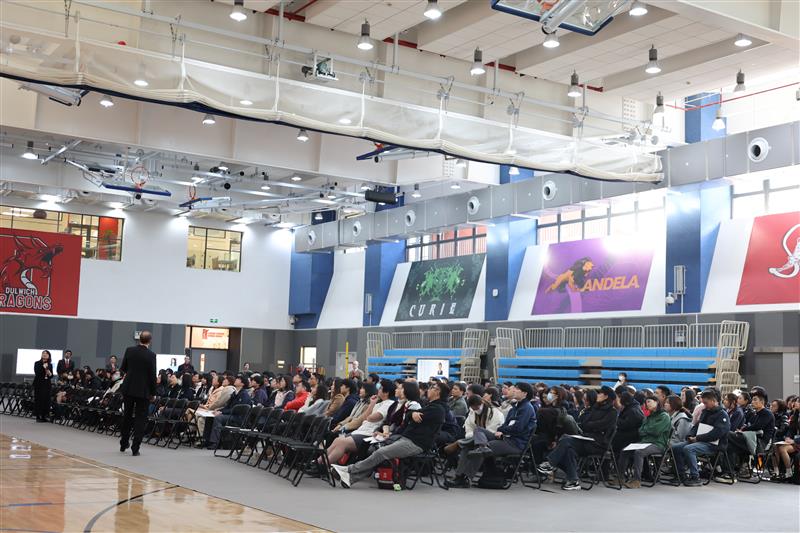
A Systematic Overview of the Path to University Education
The seminar was divided into three key sections: an introduction to the university application process, personalised Q&A sessions connecting students, parents, and their university counsellors, and a lecture with a focus on the applications in the arts. The presentation explored crucial topics, including planning for university applications, essential considerations for applying to institutions in various countries, and achieving a balance between academics and extracurricular activities. Through clear explanations and practical case studies, Mr Mark Coyle (Head of UCC) and Ms Sophia Chen (University and Careers Counsellor) provided students with valuable insights into the critical components of the university application journey.
During this session, we highlighted the significance of personalised university planning. Recognising that every student is unique, we encouraged them to develop a plan tailored to their individual interests, strengths, and future aspirations. We are confident that, after attending this session, students and parents have a clearer understanding of the various options and necessary next steps in their application journey.

Supporting Students in All Aspects
A student's academic and personal qualities are crucial factors in the admissions process. This is why the Counselling team supports students in planning their academic pathways, while also providing guidance on extracurricular activities, volunteering, and internship opportunities. We encourage students to engage in a variety of extracurricular pursuits to strengthen their profiles and distinguish themselves in future applications.
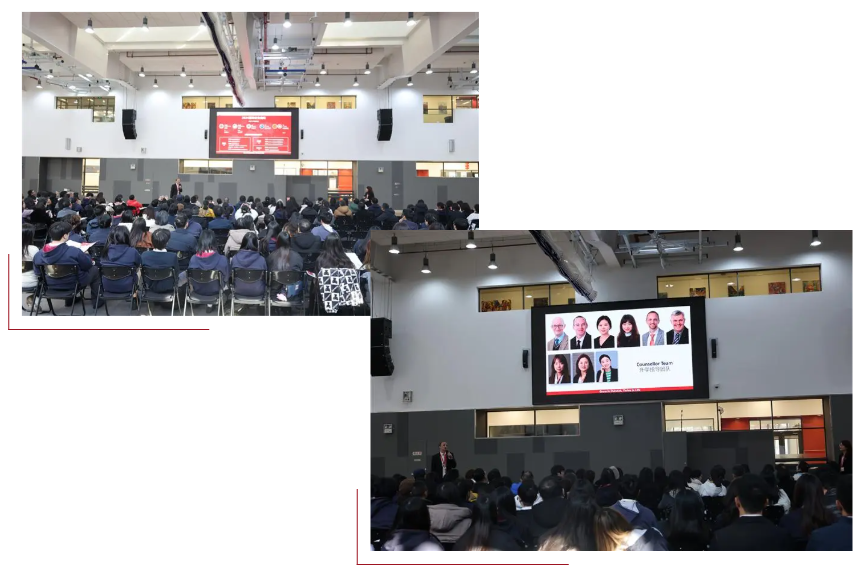
Family and School Working Together
During the Kick-off session, parents were actively involved in discussions with counsellors about their child's needs, their expectations and hopes, and how to collaborate with the school to plan effective pathways for further study. Over the next year and a half, the counselling team will provide personalised advice and guidance to each student, helping them make informed decisions about universities, as well as preparing their applications and interviews. We believe that the power of family-school collaboration will create broader opportunities for students to grow and develop.
Frequently Asked Questions for the Class of 2026
Q1 What are the advantages of early application? Why should I prepare early?
The Early Decision (ED) is a binding agreement between the student and a university, requiring the student to enrol if admitted. It can only be submitted to one university and may help increase the acceptance rate. In contrast, the Regular Early Application (EA) does not limit the number of applications a student can submit. For popular universities and programmes, applying early often provides a better chance of securing a place in a limited pool of available spots. For arts students, applying early can also increase the likelihood of receiving a scholarship. Additionally, preparing early can reduce stress during the application season, giving students more time to revise and adjust their application materials.
Click here to see more about ED/EA
Q2 How should I balance extra-curricular activities with academic performance?
Academic performance is undoubtedly the core of the university application process, but extracurricular activities are also an important criterion used by universities to evaluate students. Students are advised to choose extracurricular activities based on their own interests and to maintain the depth and consistency of their involvement. They can select activities related to their future studies or projects that demonstrate leadership, teamwork, and other skills. The most important thing is to maintain a good academic record while managing extracurricular activities wisely, ensuring that no aspect is sacrificed.
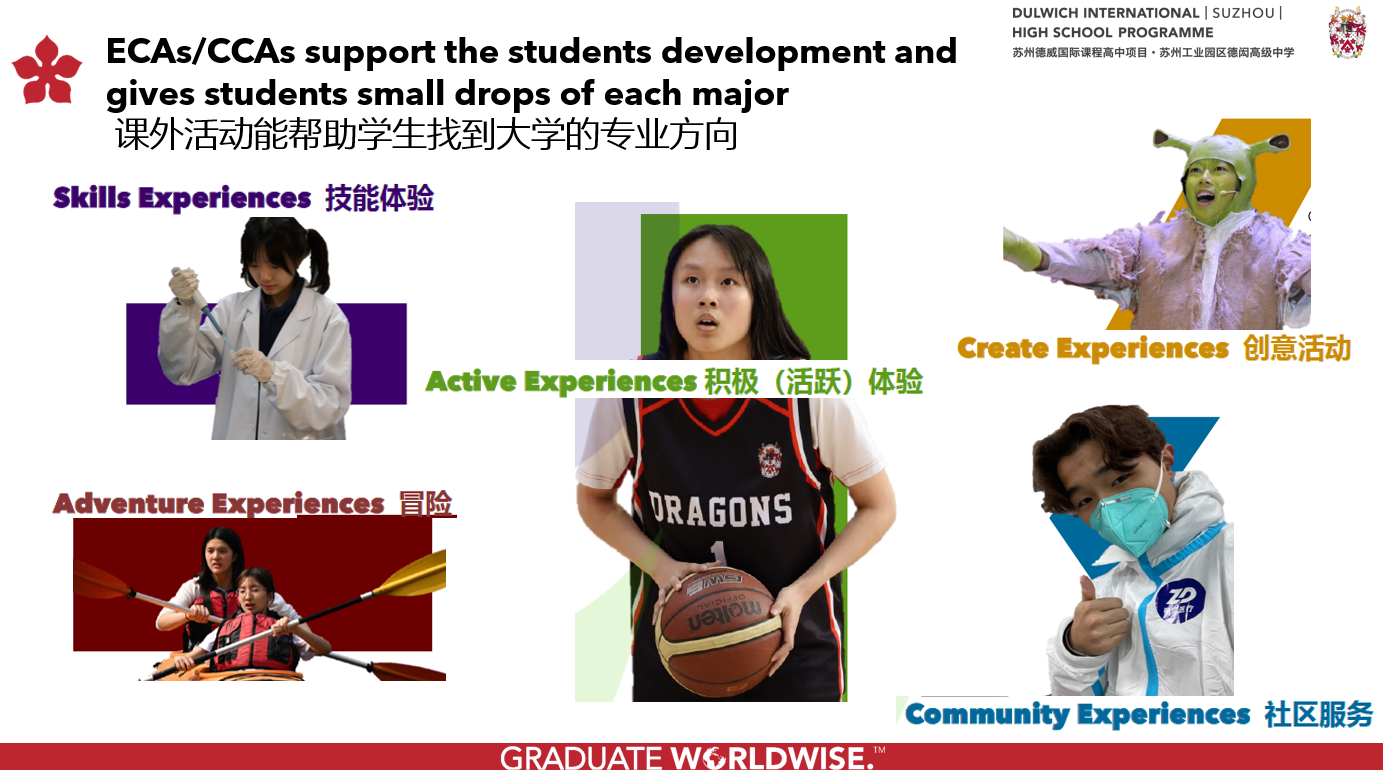
Q3 How can I communicate effectively with my Counsellor during the application process?
Effective communication starts with initiative and punctuality. You should seek help from your Counsellor well in time if you are experiencing problems with your studies and/or application. Parents and students can raise their concerns at meetings for up-to-date information and application advice. The Counsellors will help students to develop the best possible plan by providing guidance that suits each student's needs.
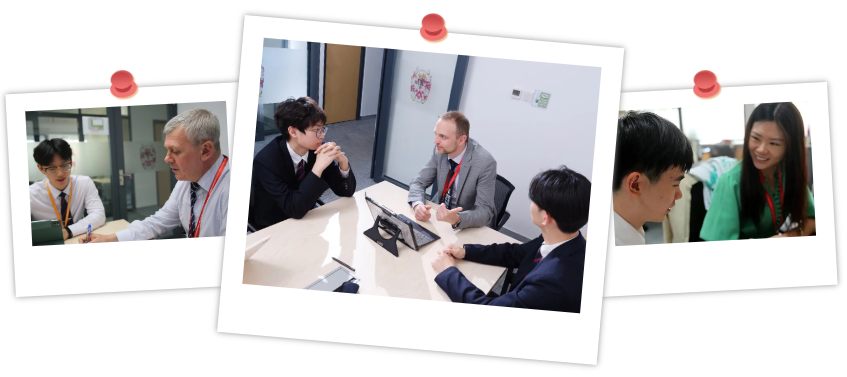
Q4 How to choose the “Best fit” university and major for you?
When choosing a university and major, you should first consider your interests, strengths and future career plans. You can find out about the curriculum, course content and campus culture of different universities through a variety of channels to help you assess which university is more suited to your needs. Secondly, you should be aware of the career prospects and academic requirements of different majors to ensure that your choice of major is in line with your career goals. When making your choice, try not to blindly follow the trend, but to carry out thorough research and self-assessment.
Q5 How should I make the best use of my holiday?
Holidays are an important time for students to relax and prepare for university applications. For example, participating in summer schools, volunteering, gaining work experience, or taking part in competitions can all enhance your background. It is also a good idea to use the holidays to study for language tests (such as IELTS or TOEFL) or standardised tests (e.g. SAT, ACT) to ensure you are fully prepared for the application process.
We hope that these answers to frequently asked questions will help parents and students gain a clearer understanding of the key aspects of the university application process, ensuring that each student can progress smoothly and with confidence to the next stage.





